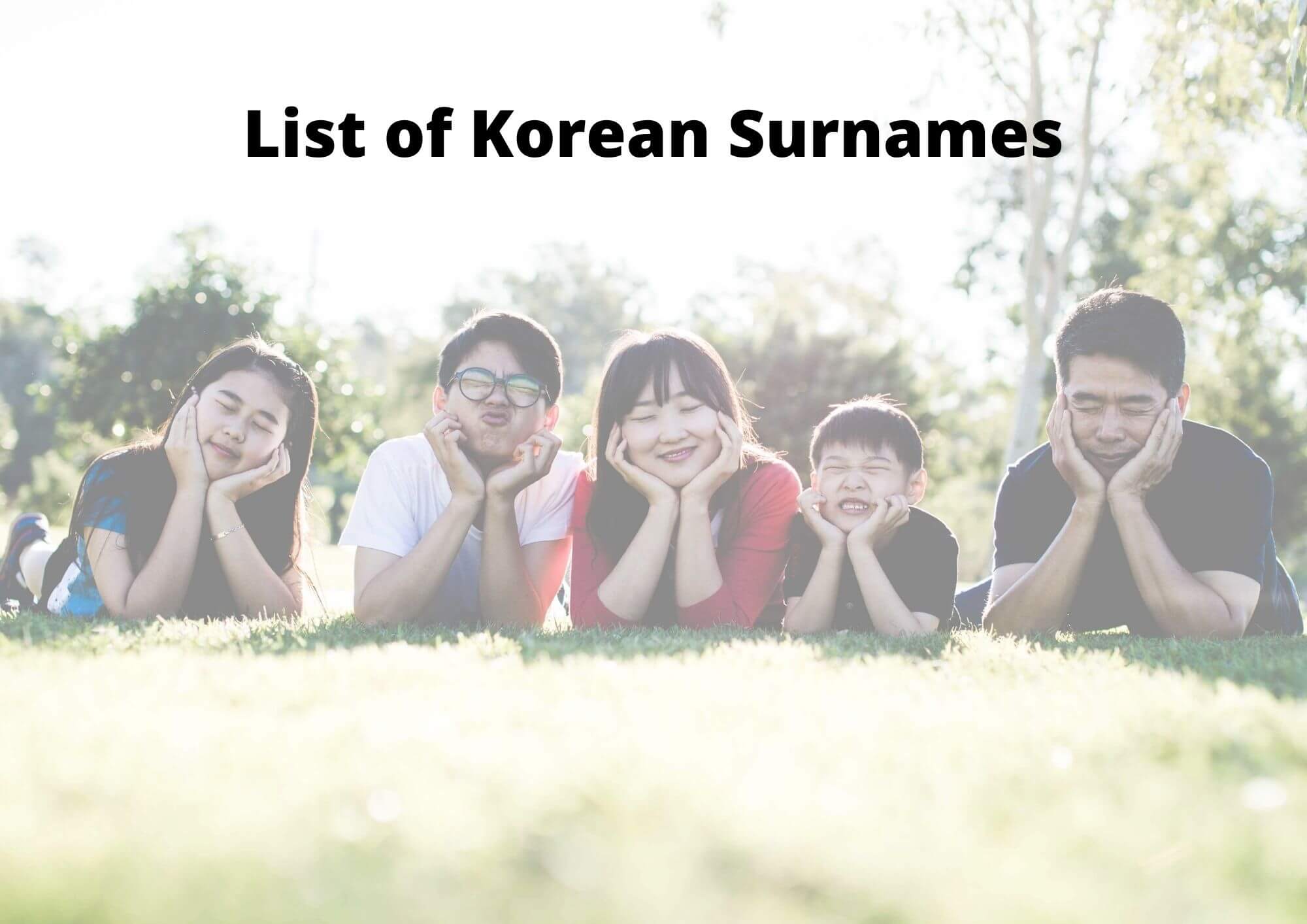
Breaking: What You Didn’t Know About Korean Surnames! – What You Didn’t Know!
Korean Surnames: A Rich and Diverse Heritage
Korean surnames are a fascinating and integral part of Korean culture and history. They have evolved over centuries, influenced by various factors such as geography, social structure, and cultural practices. Understanding Korean surnames provides valuable insights into the country’s rich heritage and the unique characteristics of its people.
The Origin and Significance of Korean Surnames
The origins of Korean surnames can be traced back to ancient times, with the earliest known surnames appearing during the Three Kingdoms period (57 BC – 668 AD). These surnames were primarily associated with clans and tribes, indicating familial relationships and social status. Over time, surnames became more widespread and diverse, reflecting the growing complexity of Korean society.
The Structure of Korean Surnames
Most Korean surnames consist of one or two syllables, with the most common structure being a single-syllable surname followed by a two-syllable clan name. The surname is typically written first, followed by the clan name. The clan name often indicates the region or origin of the family.
The Most Common Korean Surnames
The three most common Korean surnames are Kim, Lee, and Park. These surnames are shared by a significant portion of the population and have a long history and rich cultural significance. Other common surnames include Choi, Jung, Kang, and Cho.
The Influence of Geography on Korean Surnames
The geography of Korea has played a significant role in the distribution of surnames. Certain surnames are more common in specific regions, reflecting historical migrations and settlement patterns. For example, the surname Kim is more prevalent in the southern part of Korea, while the surname Lee is more common in the north.
The Role of Clan Associations
Clan associations, known as “bon-gwan,” play an important role in Korean society. These associations are based on shared ancestry and provide a sense of community and support among members. Clan associations often organize gatherings, maintain family records, and support cultural activities.
The Impact of Social Status on Korean Surnames
During the Joseon dynasty (1392–1910), the social status of a family influenced the choice of surname. The royal family and high-ranking officials adopted surnames that were considered prestigious and exclusive. Commoners, on the other hand, were restricted to using a limited number of surnames.
The Influence of Chinese Culture on Korean Surnames
Korean surnames have been influenced by Chinese culture over the centuries. Many Korean surnames are derived from Chinese characters, and the Chinese reading of Korean surnames is often used in formal settings.
The Adoption of Western Surnames
In recent decades, there has been a growing trend of Koreans adopting Western surnames, particularly among those who have immigrated to Western countries. This practice is often motivated by the desire to better integrate into Western society.
The Uniqueness of Korean Surnames
Korean surnames are a unique and integral part of Korean culture. They provide a rich source of historical, social, and cultural insights. Understanding Korean surnames helps to deepen our understanding of this fascinating and multifaceted country.
Leave a Reply